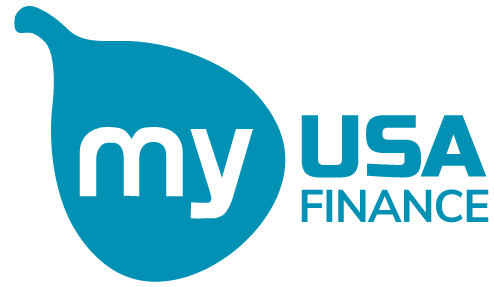Personal loans can be a game-changer when it comes to managing unexpected expenses, consolidating high-interest debt, or financing large purchases. But once you’ve secured a personal loan, the real challenge begins: paying it off as quickly as possible. The faster you pay off your loan, the less interest you’ll pay, bringing you closer to financial freedom.
If you’re asking yourself, ‘How can I pay off my personal loan faster?’ you’re in the right place. In this guide, we’ll walk you through the most effective strategies to reduce your loan balance, minimize interest costs, and get you debt-free sooner.
Looking to Consolidate Your Debts?
Explore your options today!
1. Make More Than the Minimum Payment
Sticking to just the minimum required payment keeps you on track, but it’s not the fastest way to pay off your personal loan. To accelerate your debt-free journey and minimize interest costs, making extra payments is key. Even small increases can have a big impact over time.
Here are a few smart strategies to reduce your loan balance quickly:
- Round Up Your Payments: If your payment is $275, round it up to $300 or more.
- Bi-Weekly Payments: Instead of one monthly payment, split it in half and pay every two weeks—this results in an extra payment each year.
- Lump Sum Payments: Apply bonuses, tax refunds, or windfalls directly to your loan to lower the principal balance faster.
Pro Tip: Check if your lender has prepayment penalties before making extra payments to avoid unnecessary fees.
2. Set Up Automatic Payments
Did you know that many lenders offer interest rate discounts for setting up automatic payments? This simple action can lower your interest rate—typically by 0.25% to 0.50%—which can save you a significant amount over the life of your loan.
Here’s why automatic payments are a smart choice:
- Prevents Missed or Late Payments: Setting up autopay ensures that your payments are always made on time, avoiding costly late fees.
- Consistency in Repayment: Autopay helps you stay on track with your payment schedule, reducing the risk of falling behind.
- Potential for a Lower Interest Rate: Some lenders offer rate reductions (often 0.25% to 0.50%) when you enroll in autopay, which can save you money in the long run.
Missing even a single payment can damage your credit score and increase your total loan cost due to late fees. Avoid these pitfalls by setting up autopay today.
3. Refinance Your Loan for a Lower Interest Rate
If your credit score has improved or if interest rates have dropped since you originally took out your loan, refinancing could be a smart strategy. By securing a new loan with a lower interest rate or more favorable terms, you can potentially save hundreds or even thousands of dollars over the life of your loan.
- Compare Rates from Multiple Lenders: Shop around to find the best deal. Different lenders offer different rates, so it’s worth exploring several options.
- Check for Prepayment Penalties: Before refinancing, make sure your existing loan doesn’t have penalties for early repayment.
- Evaluate the Fees: Ensure that the fees associated with the new loan (e.g., origination fees) don’t outweigh the savings from the lower interest rate.
- Apply and Pay Off the Old Loan: Once you’ve secured the best loan, use it to pay off your current loan and benefit from better terms moving forward.
Refinancing is only worthwhile if the new loan offers a lower interest rate and better repayment terms. Be sure the savings outweigh any fees or costs associated with refinancing.

Looking for a Personal Loan?
Explore your options today!
4. Consolidate High-Interest Debt
If you’re juggling multiple loans or high-interest credit card debt, a debt consolidation loan could simplify your payments and reduce your overall interest costs. By consolidating your debt into one loan with a lower interest rate, you can potentially save money and make repayment more manageable.
Debt Consolidation Might Be Right for You If:
- You Have Multiple High-Interest Debts: If you’re carrying several loans or credit card balances with high interest rates, consolidation can help reduce the overall interest you pay.
- You Qualify for a Lower Interest Rate: If you can secure a consolidation loan with a lower interest rate than your current debts, it can result in significant savings.
- You Want One Easy Payment: Consolidation combines multiple debts into a single monthly payment, making it easier to track and manage.
However, it’s important to weigh all your options carefully. If the consolidation loan comes with higher fees or a longer repayment term, you could end up paying more in the long run. Always compare loan terms to make sure the new loan will genuinely save you money.
Read More: How Debt Consolidation Works
5. Cut Unnecessary Expenses and Redirect Savings
One of the fastest ways to free up extra cash for loan payments is to cut back on non-essential spending. Even small sacrifices can add up over time and help you pay down your loan faster.
Consider trimming back on these areas:
- Food Delivery & Dining Out: Opt for cooking at home or meal prepping to save on food expenses.
- Streaming Services & Subscriptions: Evaluate which subscriptions you actually use and cancel the ones you don’t.
- Unused Gym Memberships: If you’re not using your gym membership, consider freezing or canceling it to save money.
- Impulse Online Shopping: Avoid unnecessary purchases by setting a budget or limiting your online shopping habits.
- Luxury Expenses: Scale back on non-essential luxuries, such as expensive alcohol or vacations, until your loan is paid off.
After identifying these areas, redirect the money you save directly toward your loan payments. These extra contributions will help you reduce your balance faster, saving you money on interest in the long run.
6. Negotiate a Lower Interest Rate with Your Lender
If you’ve been making on-time payments and your credit score has improved, you may have an opportunity to negotiate a lower interest rate with your lender. Even a small reduction in your rate can lead to significant savings over time, making it easier to pay off your loan faster.
Steps to Request a Lower Interest Rate:
- Contact Your Lender: Reach out to your lender and ask if they can offer a lower interest rate based on your improved credit score or payment history.
- Provide Proof of Credit Improvement: Share evidence of your improved credit score or financial stability to strengthen your case.
- Inquire About Hardship Programs: If you’re facing financial difficulties, ask your lender about any hardship programs or payment assistance options they offer.
Remember, even a small interest rate reduction can save you hundreds or even thousands of dollars over the life of your loan.
7. Consider a Balance Transfer Credit Card
For borrowers with good credit, a 0% APR balance transfer credit card can be an effective way to eliminate high-interest debt. By transferring your personal loan balance to such a card, you can save on interest and pay off your loan faster.
How It Works:
- Transfer Your Loan Balance: Move your personal loan balance to a 0% APR credit card, giving you a temporary break from high interest.
- Pay Off the Balance: Pay off the transferred balance before the promotional period ends, typically within 12-18 months, to avoid accruing interest.
- Avoid High Interest: Once the promo period expires, the interest rate will increase, so aim to pay off the balance in full before then.
Most balance transfer cards charge a 3%-5% transfer fee, so be sure to calculate whether the savings on interest outweigh the cost of the transfer fee.
How to Pay Off Your Personal Loan Faster
Paying off your personal loan faster not only saves you money on interest, but it can also boost your credit score and bring you peace of mind. Whether you choose to make extra payments, refinance for better terms, or cut unnecessary expenses, every step you take can bring you closer to financial freedom.
At MyUSAFinance, we’re committed to helping you make informed, smart financial decisions.
Frequently Asked Questions:
1. What’s the best way to pay off a personal loan faster?
Make extra payments, set up automatic payments, refinance for a lower rate, consolidate high-interest debt, cut unnecessary expenses, and negotiate a lower interest rate with your lender.
2. Does making extra payments really help?
Yes! Extra payments—like rounding up or making bi-weekly payments—can lower your balance and reduce interest over time.
3. Will I incur fees if I pay off my loan early?
Yes! Extra payments—like rounding up or making bi-weekly payments—can lower your balance and reduce interest over time.
4. How will paying off my personal loan faster affect my credit score?
Yes! Extra payments—like rounding up or making bi-weekly payments—can lower your balance and reduce interest over time.
5. How can cutting expenses help me pay off my loan?
Cutting back on non-essential spending—like dining out or subscriptions—frees up money that can go toward your loan.











